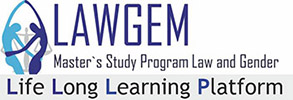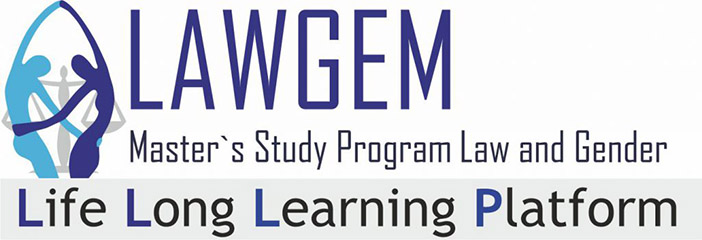Faculty of Law University of Belgrade in the cooperation with the OSCE Mission to Serbia organized the Spring School/Pilot Master – Law and Gender. This Spring School was based on the project LAWGEM and served as a kind of the pilot practicing of the future master`s study program Law and Gender. It covered all courses contained in this master`s study program curriculum, and the reading materials consisted to a great extent of the books published within the LAWGEM project. The School was organized in a hybrid form – in person at the Faculty of Law University of Belgrade and online, with 69 participants (students of undergraduate, master and PhD level), both from Serbia and other countries around the world (Albania, Belarus, Bosnia and Herzegovina, Brazil, China, Croatia, France, Germany, India, Iran, Italy, Montenegro, Russia and Vietnam). It is certain that participants of this School have gained valuable knowledge which will help them on their academic path and in their professional careers. On the other hand, the Spring School represented an excellent preparation of lectures and pedagogic experiences of the scholars from the University of Belgrade Faculty of Law for the future conducting the master’s study program Law and Gender.
Associate Professor Dr. Svetislav Kostić and Teaching assistant Lidija Živković presented the course Gender Equitable Taxation that was structured in three parts. The first part introduced the students with the topic by explaining the general relevance that taxation in modern democratic societies bears for the issue of gender equality. The second part of the lecture was dedicated to defining and identifying gender biases in taxation. The concepts of both explicit and implicit gender bias were explained through a variety of examples in the field of personal income taxation, corporate income taxation, property taxation, as well as the taxation of consumption. Examples were intended to paint a picture of the historical developments on the issue of non-gender neutrality of tax systems, but also to present the status quo apparent in contemporary tax jurisdictions. The third part of the lecture covered the topic of gender responsive budgeting, which in effect represents the other side of the coin in relation to taxation. The aim of this part of the lecture was to draw the students’ attention to the importance of the question of how the funds collected by the state are (and should) actually be spent, so as to take into account the needs of all genders.
Gender Equitable Taxation 1: Setting the Scene
Gender Equitable Taxation 2: Effects of Tax Structure on Gender Equity: Recognizing Gender Biases
Gender Equitable Taxation 3 – Gender Responsive Budgeting

